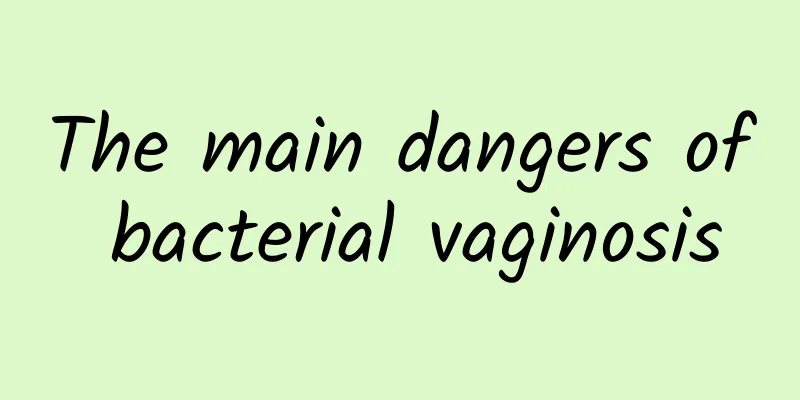What to eat after menopause to delay aging

|
Dietary adjustments after menopause can help slow down aging. Choosing foods rich in plant hormones and nutrients can help maintain a healthy state. 1. Eat more bean products Beans, such as soybeans and tofu, are good sources of phytoestrogens. The isoflavones in these foods can mimic the effects of estrogen, help regulate hormone balance in the body, and relieve postmenopausal discomfort. For women, moderate intake of bean foods can not only delay aging, but also reduce the risk of cardiovascular disease. 2. Increase your intake of whole grains and coarse grains Whole grains and coarse grains, such as oats, brown rice, and black rice, are rich in dietary fiber and multiple vitamins. These foods help improve digestive system function, stabilize blood sugar levels, and provide lasting energy. Postmenopausal women often face the problem of weight gain. The low-calorie and high-satisfaction characteristics of whole grains and coarse grains can effectively help control weight. 3. Get enough calcium and vitamin D After menopause, women are more likely to have osteoporosis. Calcium and vitamin D are important elements for bone health. Getting more sun exposure is a natural way to supplement vitamin D, while dairy products such as milk, cheese, and yogurt are good sources of calcium. Dark green vegetables such as broccoli and spinach are also rich in calcium. 4. Eat more foods rich in antioxidants Antioxidants can help fight free radical damage to cells, thereby delaying aging. Foods rich in antioxidants include blueberries, strawberries, grapes, nuts, and dark-colored vegetables. These foods not only protect the skin, but also improve immunity and maintain overall body health. 5. Eat healthy fats Healthy fats, such as omega-3 fatty acids, have a positive effect on heart health and cognitive function. You can choose deep-sea fish, such as salmon and sardines, or plant sources of omega-3 fatty acids, such as flax seeds and walnuts. Healthy fats also help maintain skin elasticity and moisture. 6. Maintain a happy mood and active lifestyle In addition to diet, mental health is equally important. Taking part in outdoor activities, communicating with friends and family, and listening to music can help maintain a good mood. A positive attitude towards life can improve the quality of life and reduce the negative impact of stress on the body. Through a proper diet and an active lifestyle, postmenopausal women can better cope with the changes in their bodies and slow down the pace of aging. Remember to have regular physical examinations, pay attention to your health, and seek professional medical advice when necessary. Healthy eating is not just about choosing the right foods, but also about eating in moderation and in a balanced manner. Staying healthy is not about temporary efforts, but long-term persistence. |
<<: Signs of menstruation in a 12-year-old girl
>>: Is 3D color Doppler ultrasound accurate for intrauterine adhesions?
Recommend
What are the common symptoms of pelvic inflammatory disease?
Acute pelvic inflammatory disease is more common ...
What are the causes of vaginal candidiasis
Vaginitis is a common gynecological disease in to...
Can hidden abortion be clean? What should I do if hidden abortion has occurred?
Hidden miscarriage (disappearance of the fetus) r...
Can I take stomach medicine after miscarriage?
Can I take stomach medicine after miscarriage? 1....
What are the main symptoms of ectopic pregnancy in women?
The occurrence of ectopic pregnancy has a signifi...
The common causes of vulvar leukoplakia are these
Vulvar leukoplakia is a disease that causes great...
Chocolate cysts will definitely recur. How to prevent chocolate cysts from recurring?
Although the recurrence rate of chocolate cyst is...
Does having uterine fibroids affect pregnancy? What are the symptoms of uterine fibroids?
Will women with uterine fibroids affect pregnancy...
What are the common symptoms of ovarian cysts?
Many women panic and don't know what to do af...
Effective folk remedies for treating hydatidiform mole
Effective remedies for treating hydatidiform mole...
What Chinese medicine should not be taken by women during menopause
Taking inappropriate Chinese medicines during men...
Is miscarriage dangerous due to uterine fibroids?
Uterine fibroids are one of the most common benig...
What are the prominent symptoms of chronic adnexitis?
Chronic adnexitis is a relatively common type of ...
Health care measures for patients with Bartholinitis
Bartholinitis is an inflammation caused by infect...
What are the treatment tips for cervicitis?
In life, cervicitis is a common disease among wom...









